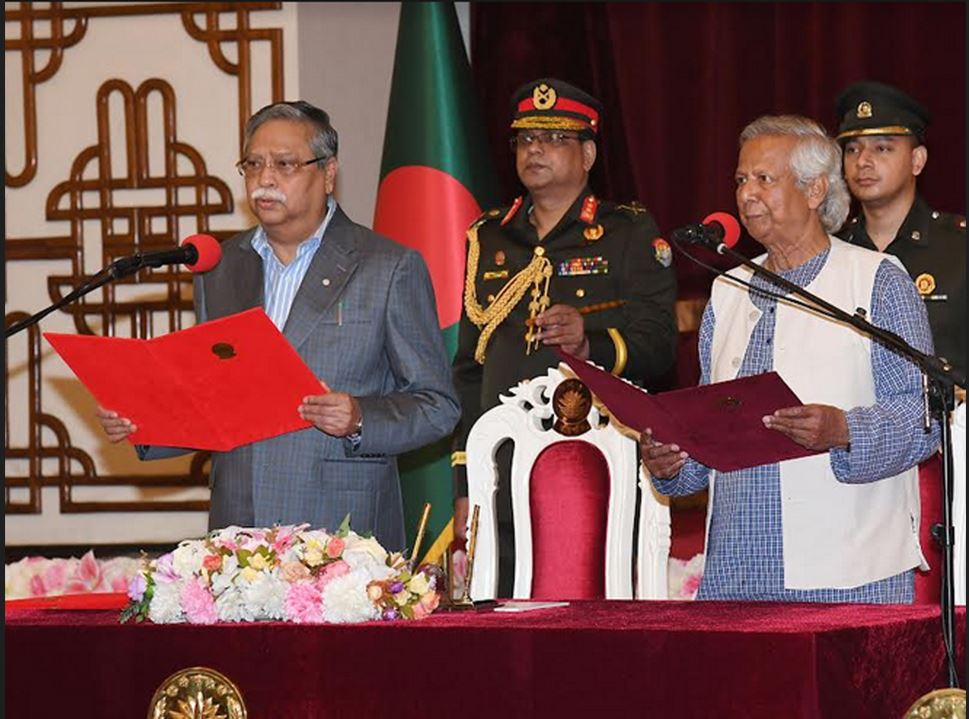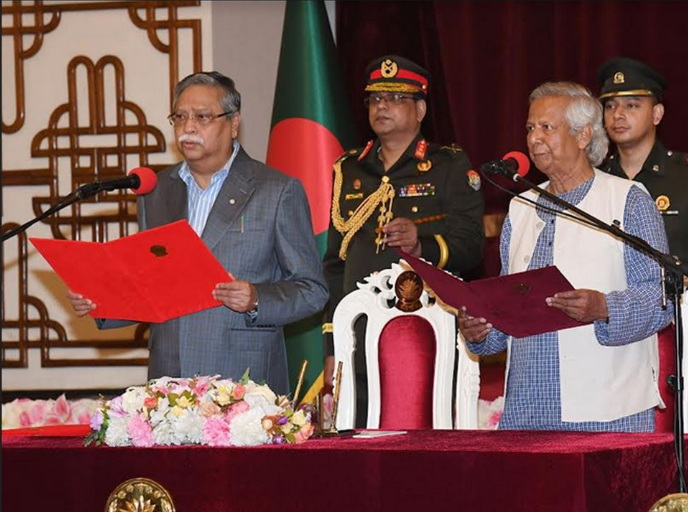
Nearly two months have passed since the Interim Government (IG), led by Dr. Yunus, took control of the nation. Although it may be too early to issue a final verdict on the IG’s performance, there are already numerous analyses, not all of them favourable, circulating on social media and YouTube. Amid this mix of sentiment, I, as an independent observer, decided to offer my own perspective.
Following the collapse of Hasina’s dictatorial regime, Dr. Yunus was called upon to lead the IG amidst a sea of challenges—political and economic anomalies, contradictions, and near-total lawlessness. His difficulties did not end with Hasina’s flight from the country; she quickly started conspiring against the IG, supported by her foreign benefactors and local criminal networks.
It is thus essential to examine these issues holistically rather than piecemeal. Successful revolutions often take years of struggle, planning, and crystallizing visions and objectives. Whether it was the French Revolution, the American Civil War, the Latin American uprisings, or our own War of Liberation, all required structured leadership and clear goals, supported by substantial resources. In contrast, the successful outcome of the students’ “August Revolution” or “Liberation 02” seemed almost like manna from heaven. The students had no central leadership and no clear objectives beyond ending the unjust quota system. However, as their movement gained momentum, it unexpectedly morphed into a tsunami that swept away all obstacles. As we say in Bengali, “megh na chaitei brishti”—it started showering even before asking for the clouds . Faced with an inevitable downfall, Hasina, nudged a little by the military leadership, fled the country at the fastest opportunity. The student leaders were unprepared for this turn of events. A vacuum emerged in the state power: the police were in retreat, politicians fled for safety, Hasina’s bureaucratic loyalists went into hiding, and the military was left confused. The students, lacking authority to assume power, nevertheless rallied, forming a skeleton government within three days, drawing reputable figures into leadership roles with the tacit approval of the armed forces. Though most of the cabinet members came from the NGO world and apparently lacked administrative experience, their unblemished records and ethical standards offered a silver lining. Their integrity and honesty had a positive psychological effect on their ministries and the broader society. The two student leaders who have been inducted into the cabinet, until now haven’t made any missteps, which, I believe, is a positive sign.
Unlike prior transitions, the IG faced significant challenges, particularly from remnants of Hasina’s government. Rumors of a counterrevolution ran rampant, with “sleeper cells” believed to be lurking within the police, military, bureaucracy, and judiciary. However, the IG did not overreact. Instead, it calmly and compassionately dealt with the conspiracies, focusing its efforts on the structural reforms, governance, economic recovery, foreign policy, and constitutional matters. While it is too soon to claim remarkable achievements, the IG’s sincerity and commitment to guiding the nation toward a better path cannot be denied. In his two national addresses, the Chief Adviser clearly outlined the government’s objectives, including fundamental reforms to vital state institutions. Dr. Yunus has also made it clear that he has no desire to remain in power beyond fulfilling his mandate to rebuild the nation.
Signs of progress are already visible, particularly in the banking and financial sectors. The government has taken steps to recover funds laundered by Hasina, her family, and her corrupt oligarchs. The surge in remittances from expatriates reflects growing trust in the new government. Of course, the IG is not without its shortcomings. Mistakes have been made, but an unbiased assessment would show these errors were unintentional and stemmed from inherent limitations. Every government faces constraints, and Dr. Yunus and his team have more than their fair share of challenges.
I have known Dr. Yunus for nearly four decades and have seen him interact with world leaders, top business figures, and renowned celebrities. He has always maintained a humble demeanor, wearing his signature coatie over a Punjabi and cotton trousers, regardless of the occasion. Soft-spoken but resolute in his convictions, Dr. Yunus has never wavered from his principles. Despite the relentless persecution by Hasina over the past 16 years, he never fled the country. His resilience speaks volumes about his character, in stark contrast to Hasina’s ignominious escape.
As the head of the IG, Dr. Yunus has taken on the immense responsibility of guiding the nation not for personal gain, but out of patriotism. He has staked his global reputation to rescue a nation on the brink of collapse. In Dr. Yunus, we have not only an honest leader but also a man whose global goodwill brings benefits to Bangladesh. His reception at the UN exemplifies this. Dr. Yunus was a brilliant star on the global stage, holding over 50 meetings in four days, including with President Biden, heads of UN agencies, and leaders of financial institutions like the IMF and World Bank. The EU has pledged substantial investment in Bangladesh, and China has reaffirmed its commitment to the country. Dr. Yunus’s international standing, I hope, will continue to draw global attention to Bangladesh.
With Dr. Yunus at the helm, I am optimistic that the IG will complete its reform agenda and pave the way for a new, democratically elected government. In the meantime, I urge my fellow countrymen to be patient for a few more months and observe the direction the country takes.

